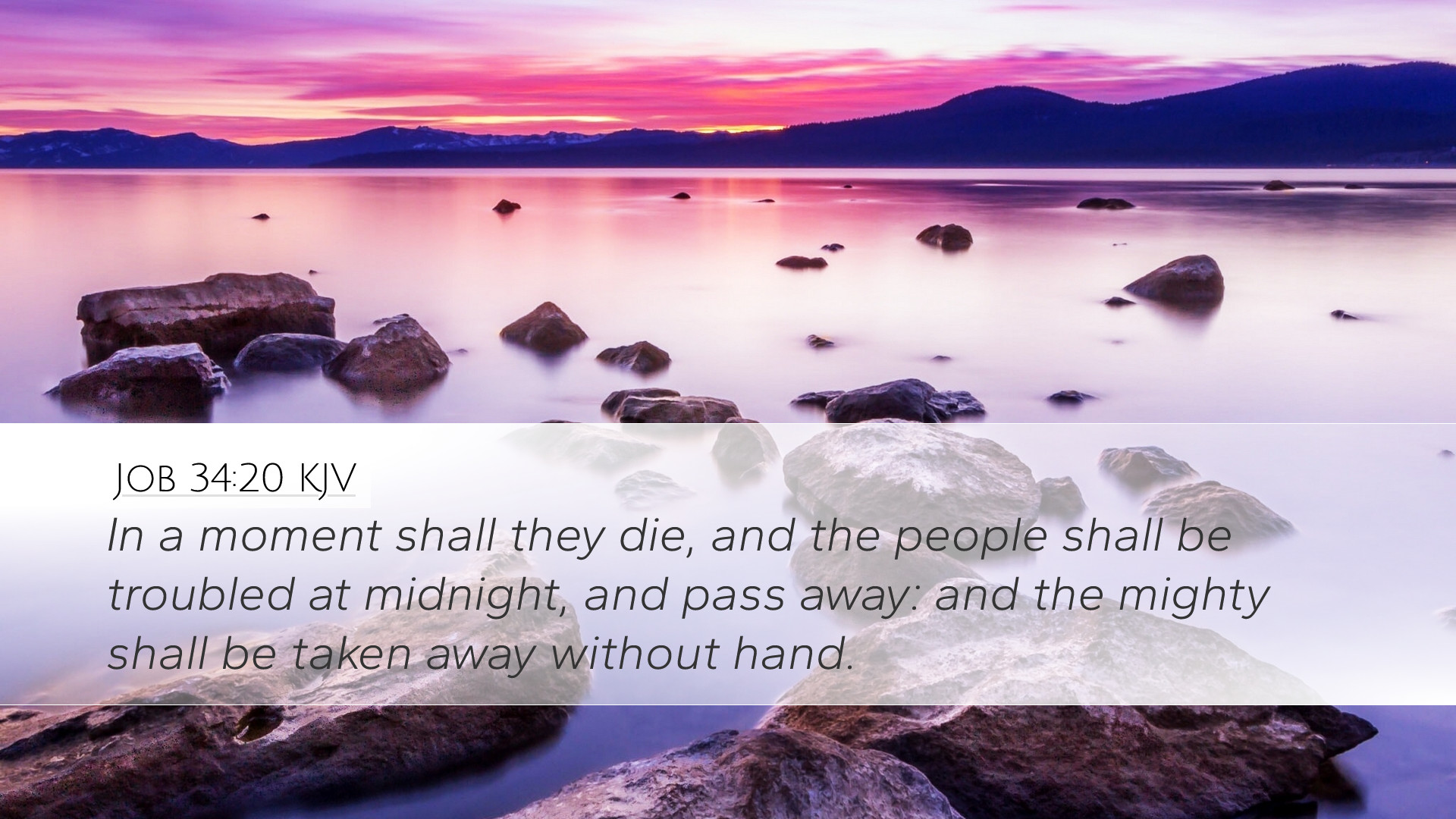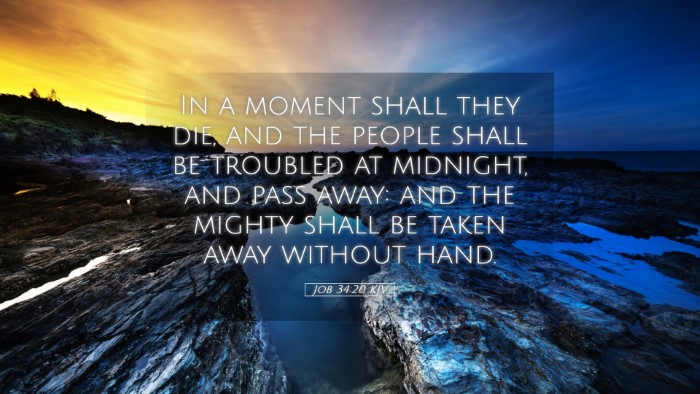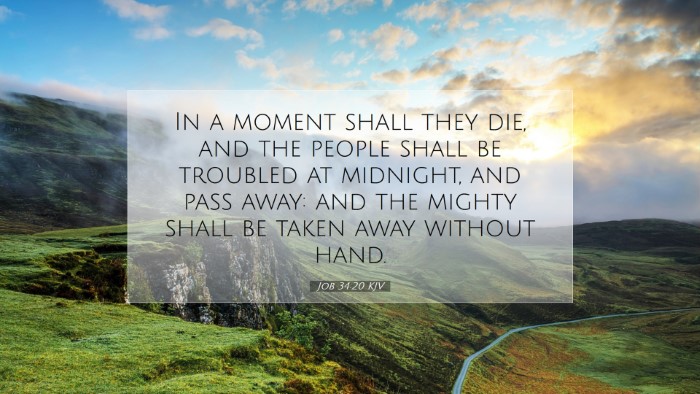Commentary on Job 34:20
Job 34:20 states: "In a moment shall they die, and the people shall be troubled at midnight, and pass away: and the mighty shall be taken away without hand."
Introduction
This verse is part of Elihu's discourse and emphasizes the sovereign authority of God over life and death. It serves as a profound reminder of the transitory nature of human existence and the inevitability of divine judgment.
Contextual Background
In the book of Job, the dialogues explore the problem of suffering, the justice of God, and the righteousness of humans. Elihu, a younger figure, seeks to provide clarity to Job's grievances and challenge the prevailing notions held by Job's three friends. His speeches serve as a bridge leading up to God's eventual response.
Thematic Insights
- The Sovereignty of God: This verse illustrates how God rules over the lives of men without the need for physical intervention. The phrase "without hand" signifies that God's interventions can occur through natural or supernatural means, irrespective of human understanding.
- The Unpredictability of Life: Elihu underlines the suddenness of death, depicted in the phrase "In a moment shall they die." This reflects the notion that life is fragile and uncertain, aligning with the biblical teaching that human life is but a vapor (James 4:14).
- Mankind's Vulnerability: The "mighty" being taken away highlights that even the strongest among us are subject to God's will and not immune to His judgment. This serves as a sobering reminder to all, regardless of status or power.
Commentary from Public Domain Sources
Matthew Henry's Commentary
Matthew Henry emphasizes the suddenness with which God's judgment can take place, likening it to the midnight hour when unexpected events transpire. He notes that the reference to being "troubled at midnight" serves as a metaphor for the unexpected nature of divine intervention and human mortality. The use of "without hand" underscores the idea that God does not need human aid for executing His purposes; His judgments can be swift and all-encompassing.
Albert Barnes' Notes on the Bible
Albert Barnes elaborates on the verse by interpreting the "mighty" as those who are powerful in a socio-political sense. He asserts that despite their earthly power, they are not outside of God's control. Furthermore, Barnes points out that the fear and trouble experienced by people upon witnessing sudden deaths or calamities serve as an acknowledgment of God’s authority. This reflects a deep theological truth: human beings can be taken by surprise, but God’s omniscience encompasses all that occurs.
Adam Clarke's Commentary
Adam Clarke approaches the text with a focus on God's justice. He remarks that the imagery of death occurring at midnight can signify the dark and foreboding nature of divine wrath. Clarke critiques human presumptions about life and warns against complacency regarding divine justice. Instead, he stresses the importance of living righteously, recognizing that life can be abruptly ended, and that one should always be prepared for the eventualities of life and death as ordained by God.
Theological Implications
- Understanding of Divine Justice: This verse accentuates the truth that divine justice operates outside of human frameworks and cannot be measured by human standards of fairness.
- Hope Amidst Mortality: While the verse speaks of sudden death, it implicitly encourages believers to find hope in God who governs life. There exists a promise of eternal life that transcends earthly mortality.
- Call to Awareness: The vivid imagery of midnight serves as a metaphorical alarm for believers to stay vigilant, recognizing that God's timing is often beyond human comprehension.
Practical Applications
- Encouragement for the Suffering: Pastors can use this verse to comfort those undergoing trials, reassuring them of God's sovereignty even when circumstances seem dire.
- Reflection on Life's Fragility: This text serves as a reminder for students and scholars to reflect upon the brevity of life, urging a life lived with purpose and a focus on eternal values.
- Call to Righteous Living: The mighty’s vulnerability speaks directly to all individuals, imploring a lifestyle that resonates with godliness, as our status does not grant immunity from divine judgment.
Conclusion
Job 34:20 serves as a powerful reminder of the fragility of human life and the sovereignty of God. It calls believers to recognize their mortality while also encouraging them to trust in God's perfect plan. The wisdom found in the commentaries of Matthew Henry, Albert Barnes, and Adam Clarke help illuminate the text, making it applicable to the lives of pastors, students, theologians, and scholars alike. As we contemplate this passage, may we embrace both a healthy fear of God and a profound assurance in His mercy and justice.


